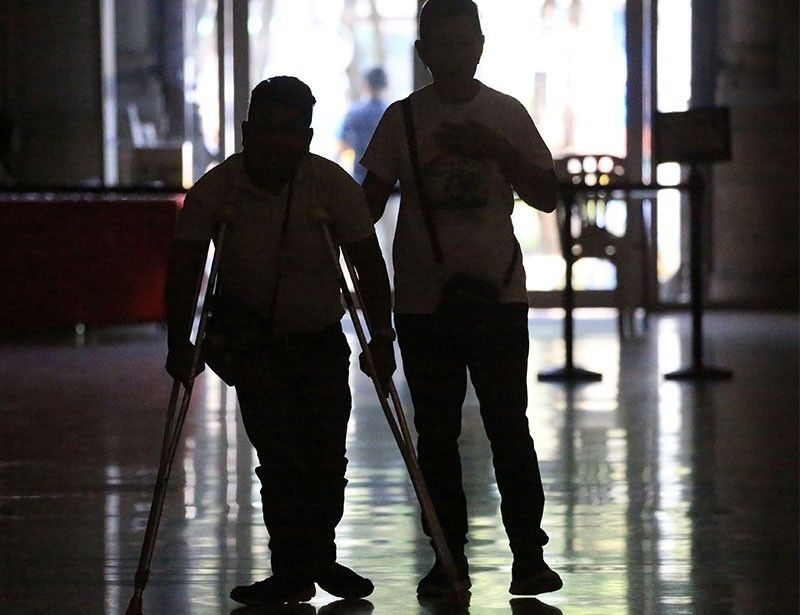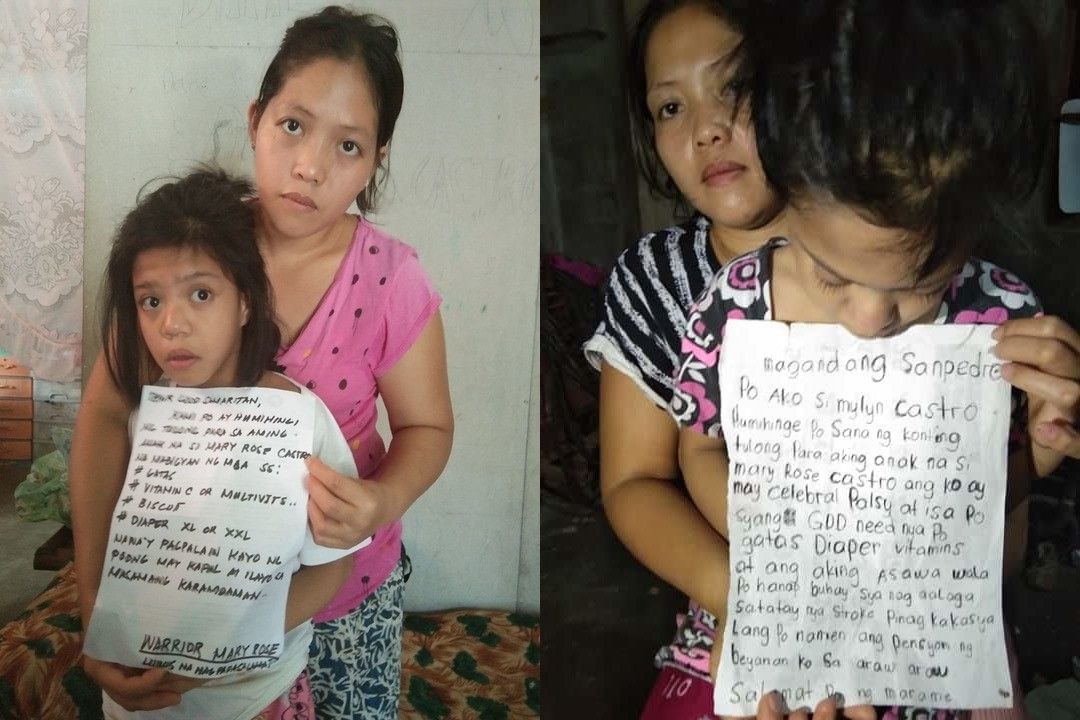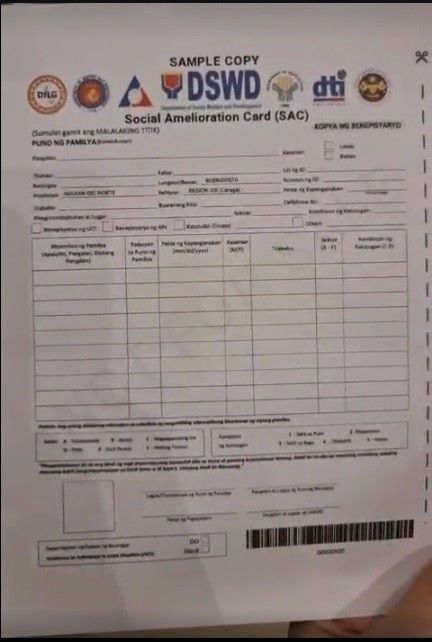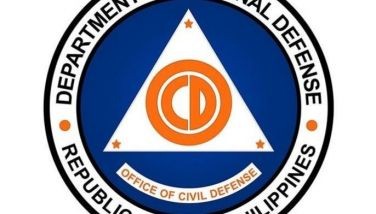Women with Disabilities Day passes with women, PWDs still facing hurdles in access and mobility

MANILA, Philippines — A day removed from Women with Disabilities Day, the Commission on Human Rights called on the government to ensure that all measures set in place to combat the spread of the novel coronavirus also take into account the special needs of persons with disabilities (PWDs).
As the country ushered in a commemoration for women PWDs, the same sector continued to struggle indoors, largely ignored and overlooked.
In an online exchange with Philstar.com, the CHR bared its policy recommendations for women with disabilities—whom the commission said faced increased vulnerabilities—which include exclusive Philhealth insurance packages for PWDs, increased funding for healthcare, and the expedited implementation of the Philippine Registry of Persons with Disability, among other social protection measures.
The commission in a statement issued on Monday also expressed concern over the possible effects that COVID-19 containment measures, which include the enhanced community quarantine and social distancing, could have on the disabled, especially women.
Whether in peacetime or in war, after all, women are among the hardest hit during calamities, and an enhanced community quarantine is no exception.
RELATED: Women in farming towns bear brunt of El Niño
Though not a PWD herself, these words ring true for Mylyn Castro, 29, a mother of three whose eldest has cerebral palsy, global developmental delay and asthma.
When she can afford it, she takes her 10-year-old, Maryrose, all the way from San Pedro, Laguna to the Philippine General Hospital in Manila.
That was possible a year ago, before her husband has been idled by the quarantine and they have to live under quarantine.
"This particularly affects women with disabilities as they are mostly the caregivers in their households. This put them too at an increased risk of gender-based violence due to heightened anxieties and frustrations inside the household," CHR spokesperson lawyer Jacqueline Ann de Guia said in a statement issued Monday.
'Fulfillment of PWDs rights'
By virtue of Proclamation No. 744 s. 2004, the last Monday of March of every year is designated as Women with Disabilities Day.
The proclamation reads:
All heads of departments, chiefs of bureaus, offices, agencies and instrumentalities of the national government are hereby instructed to implement plans, programs and activities geared towards the fulfillment of the human rights of the women with disabilities.
Local chief executives and other officials of local government units are hereby encouraged to implement plans, programs and activities geared towards the fulfillment of the human rights of women with disabilities.
Persons with disabilities say they do not feel this on the ground, and for PWDs who are women and indigents, the struggle weighs doubly on them and leaves them in overwhelming and unlivable scenarios.
"Women with disabilities continue to experience barriers in accessing [Rperoductive Health] services, commodities, and information due to their intersecting vulnerabilities as women, persons with disabilities, and as members of other marginalized sectors," the CHR said in a 2019 report of its National Inquiry on Reproductive Health and Rights acquired by Philstar.com.
READ: Social distancing's victims: In a Luzon quarantine, the disabled are mostly forgotten
Maryrose's condition got even worse after her visits to PGH stopped. According to Castro, her daughter would throw tantrums more often, and later on began harming and biting herself when these happened.
"We could not bring her to therapy even if they said we could. In the first place, PGH is far away. Also, we couldn't afford it financially. We don't have money for it," she told Philstar.com in an interview.

"I feel sorry for her. She cannot go to school, so she just stays in the house. That's why she's irritable," Castro said of her daughter's condition.
On Wednesday, Castro was forced to ask other PWD groups for supplies—including diapers, vitamins and food—on social media.
Asked if she received any support from her local government unit, Castro said: "We really didn't get anything. The PWDs here are not taken care of. Sometimes, I go to the barangay hall to ask for vitamins, and they never have any available."
With their financial situation, stocking up on provisions has never been an option, and Mylyn's husband has had to buy supplies each day with whatever money they manage to scrape together.
A 2018 study from the Philippine Institute of Development Science (PIDS) said that Filipino households with disabled children spend 15% of their income for health expenses every year, while a separate PIDS study entitled "Health Practices of Children and Women with Disabilities" from the year before reads:
The proposed PhilHealth expansion for children with disabilities aims to provide coverage for habilitative/rehabilitative therapy services. Despite increased coverage, the physical access to therapy services in regards to distance to the facility and cost and availability of transportation, as well as access to therapy providers (physical therapists, speech therapists and occupational therapists) remain barriers to care and treatment.
READ: Long delays, spotty implementation deprive PWDs of PhilHealth benefits
Although there exists a law providing for mandatory Philhealth insurance coverage for registered PWDs, the implementing rules and regulations for this law have been delayed for months, leaving all coverage requests paralyzed in bureaucratic stasis.
Philhealth has also promised it would shoulder the testing costs for COVID-19 patients, a measure whose guidelines were published long before it was even announced.
"Majority of Filipinos with disabilities belong to poor families with minimum wage earners under the ‘no work, no pay’ scheme. They do not have enough money to stock up on basic food items, medicines, and other essentials, such as hygiene kits for women," De Guia said.
"Equal access to additional financial aid and relief goods are crucial to reduce the risk of Persons with Disabilities and their families from falling into greater vulnerability and impoverishment."
Social amelioration
Mylyn says the day-to-day struggle has taken a toll on her. "Sometimes, I black out or just break down and cry,," she says.
The Department of Social Welfare and Development (DSWD) will be rolling out aid for vulnerable sectors—including PWDs—amounting to P5,000 to P8,000 for two months to families affected by COVID-19 as part of the Bayanihan to Heal as One Act, the law granting President Rodrigo Duterte authority to realign the 2020 national budget.
Here are the target beneficiaries of the government's P200-B social amelioration program amid Luzon-wide enhanced community quarantine: pic.twitter.com/qjyv4wo6yg
— The Philippine Star (@PhilippineStar) March 31, 2020
RELATED: Gov't readies massive aid program during Luzon quarantine
DSWD OIC-Director Irene Dumlao in a Viber message to reporters said that the department's coordination with local governments had already started as of Tuesday morning.
"[Local Government Units] will prepare the list of the target beneficiaries of the social amelioration measures and endorse this with the complete documentary requirements to the concerned DSWD [Field Office] for verification," the DSWD said in a statement, even assuring the public there would be no delay in its delivery of goods to local government units.
"A Social Amelioration Card (SAC) that captures the family profile will be distributed to the LGUs to enable the beneficiaries to access the assistance."

But some PWD groups say that their relationships with the LGUs often turn political and just as easily go sour.
Due to the existing stigma towards the disabled, they say, some families are left out of the LGUs' priorities altogether, and consequently get no support.
Advocacy group PWD Philippines in an earlier exchange with Philstar.com said that the Department of Health once had a now-defunct national database for persons with disabilities. The group said having a working database of PWDs could make all the difference in tracking the disabled and ultimately securing their rights.
In the absence of such a list, some LGUs have had to craft databases of their own. Valenzuela City Mayor Rex Gatchalian, for instance, made use of a PWD database in bringing care packages to bedridden special needs children in the city.
Disability in quarantine
Charity is one thing, but access is another.
In a text message to Philstar.com, Transportation Assistant Secretary Goddes Hope-Libiran said, "We encourage the public, especially our senior citizens and PWDs to just stay at home and avoid commuting. We do not want them to be more exposed to the virus. This is for their own safety," she added.
The United Nations has spoken up about the disabled amid the global pandemic. In a statement issued on Tuesday, March 17, UN special rapporteur on the rights of persons with disabilities Catalina Devandas highlighted that little has been done to protect the rights of the disability community.
"Access to additional financial aid is also vital to reduce the risk of people with disabilities and their families falling into greater vulnerability or poverty," she said.
"Many people with disabilities depend on services that have been suspended and may not have enough money to stockpile food and medicine, or afford the extra cost of home deliveries."
A commuter advocacy group, too, recently called on the Inter-agency Task Force on Emerging Infectious Diseases to allow limited and regulated operations for public utility vehicles to allow those in need—including the sick, disabled and the elderly—to get to the health care they need.
READ: Commuter group hopes for limited PUV operations instead of transport ban
"People need to go to the market to buy food, to the pharmacies to buy medicine, and to the hospital to get operated on. How can the pregnant get to the hospital to give birth and the elderly get dialysis if we don't have public transportation?" the open letter by commuters group AltMobility PH read in Filipino.
AltMobility PH Letter to Secretary Nograles of the IATF-EID#CommutersNaman #NoCommuterLeftBehind #MobilityForAll #COVID19PH pic.twitter.com/2Uvj855c06
— AltMobility PH (@AltMobilityPH) March 25, 2020
"People with mobility impairment find it hard to get aid from their local barangay as they do not have access to transportation," De Guia said in her statement.
"This is especially challenging to pregnant and elderly women with disabilities who could not go to medical clinics and hospital for check-ups because care providers cannot accompany them due to physical distancing policies."
"Furthermore, people with psychosocial disabilities, such as anxiety or depression, may be in particular distress especially under self-isolation."
Disability and gender
The commemoration of Women with Disability's Day comes at the tail end of a Women's Month marred by the new epidemic. CHR's 2019 National Inquiry on Reproductive Health and Rights read, "findings revealed the multiple and intersecting barriers that women with disabilities face in the exercise of their sexual and reproductive health and rights, limited access to RH information, services, and commodities; stigma and discrimination; and exclusion when it comes to decision-making."
CHR also sent Philstar.com a comprehensive list of its policy recommendations for women with disabilities, which included:
- In light of the existing data gap on WWDs, for DOH to fast-track the implementation of Philippine Registry of Persons with Disability while ensuring that collected data are disaggregated based on gender and disabilities;
- For government agencies, especially those with frontline services, to ensure access of WWDs to information by providing sign language interpreters and local language translators as well as communication materials in braille, large print, audio format, simple language, sign language and pictures
- In view of the increased economic vulnerabilities of WWDs impinging on their access to RH and Violence Against Women and Their Children (VAWC) remedies, for the National Council on Disability Affairs (NCDA) in coordination with PhilHealth, SSS, GSIS, and LGUs to comply with Section 30 (E) of the MCW demanding for a community-based social protection scheme and the development of social protection programs for women with disabilities;
- For Philhealth to take into account the SRH issues of women with disabilities in the development of the exclusive insurance package for PWDs in compliance with the provisions of the Magna Carta for Persons with Disabilities and the Magna Carta of Women;
- For DOH and the National Implementation Team on RH to develop an RH agenda and strategy for women with disabilities that would guide the development of gender- and disability-responsive RH policies and programs for them, and to allocate funding in support thereof;
- In response to the persisting challenges arising out of the insufficient funding for health services, for the government to increase public spending for health services
A study published in 2016 by Gender & Development points out the need for policy change for WWDs, writing in its abstract, "The Philippines has developed a range of national laws, policies, and programmes in response to violence against women and girls (VAWG). However, as elsewhere, the needs and experiences of women with disabilities are rarely considered in government policies or development activities."
RELATED: 'Misogyny keeping more women out of government'
For LGUs, the CHR also bared the following recommendations:
- To take into account the specific mobility issues of WWDs in their localities and to implement corresponding RH community-based programs such as mobile health clinics, legal caravans, and house-to-house visits that would increase access of WWDs to services, commodities, and information, and VAWC remedies
- In view of the marked absence of disability awareness and widespread prejudice against WWDs among health service providers and VAWC responders, to develop and implement a comprehensive training program that will enhance the capacity of service providers so that they may adequately and appropriately respond to the issues, needs, and concerns of WWDs;
- In recognition of the important role of organizing in increasing the RH awareness and facilitating the empowerment of WWDs, for PDAOs, CSWDOs/MSWDOs, and the barangays to aid WWDs in forming their own organizations and/or assisting existing PWD and women’s organization in organizing women with disabilities;
- In view of the increased tendencies of male intimate partners and family members of WWDs to impinge on their autonomy and self-determination especially in relation to the exercise of their SRHR, to include and strengthen engagement with men and families of WWDs in the RH agenda and its implementation. Concurrently, empowerment of WWDs should be emphasized and promoted;
Today is National Women with Disabilities Day!
— Philippine Commission On Women (@PCWgovph) March 30, 2020
The Philippine Commission on Women is one with the National Council on Disability Affairs (Government) in promoting the rights of all women and girls who are disabled but abled to achieve her dreams.#WomenMakeChange pic.twitter.com/I8u8qmD5eU
Tight social distancing measures have left women with disabilities caught firmly between a rock and a hard place: if they break quarantine, they risk catching COVID-19. If they stay inside, their conditions are likely get worse.
For the poorest of the poor, no choice is afforded them to begin with, and all that's left is waiting for government support.
"When we have the money, a little savings, I try my best to go to PGH despite how difficult it is. I want to have hope for my child," Castro said.
- Latest
- Trending




























